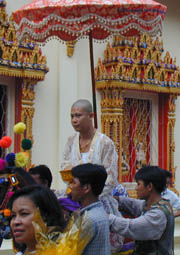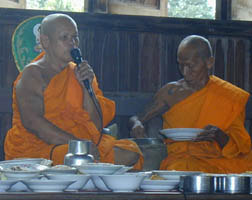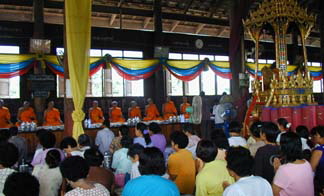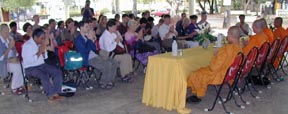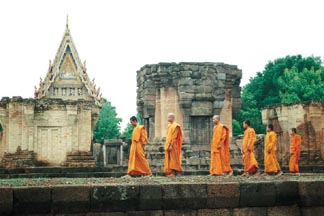|
The Buddha, the Dharma, and the Sangha or order of monks, form the three cornerstones of the Buddhist faith. In our village, we saw people show their respect for these nearly every day by placing three sticks of incense along with a candle and a lotus flower bud in front of home or temple Buddha images. |
|
|
The first monks were the earliest followers of Buddha. Today, nearly every Thai man, at one time or other in his life, becomes a monk. Many choose to do this for a period of three months after the 18th birthday and |
|
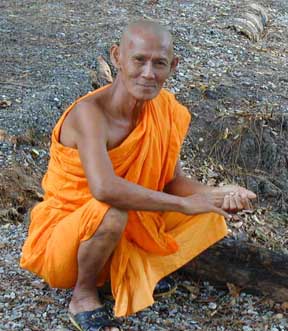 |
|||
|
A monk at the large temple Wat Pai Rong Wua |
|||
